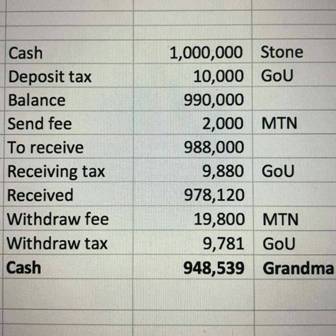NAIROBI, Kenya, Jul 5 – Ugandans woke up on Sunday, July 1, to blank screens when they attempted to log in to their social media accounts as the government made good its promise of imposing a tax on Over The Top (OTT) services such as Twitter, Facebook, Instagram, WhatsApp and SnapChat.
The social media tax, which was contained in a legislation passed by parliament last month, now means Ugandans will have to pay via mobile money USh200 (KSh5) per day, USh1,414 (Ksh57) per week or USh6,000 (KSh157) per month to access social media.
President Kaguta Museveni has justified taxing social media saying it is a luxury “by those who are enjoying themselves or those who are malicious.”
“As to social- media tax, all the moral reasons are in favour of that tax,” says Museveni.
“The social – media users have no right to squander the dollars I earn from my coffee, my milk etc by endlessly donating money to foreign telephone Companies through chatting or even lying and, then, they are allergic to even a modest contribution to their country whose collective wealth they are misusing,” said the Ugandan President in a statement.
While it was expected that the new tax would have caused an uproar, most Ugandans are not as enraged about a social media tax as they are of the increasing tax burden.
Speaking to Capital Business, Kampala-based journalist Bruno Birakwete says that Ugandans were caught by surprise by this first-in-the-world tax category, but most social media users are more upset that this exercise duty subjects Ugandans to double if not triple taxation on related services.
“You pay using mobile money, which they (Government) increased tax on mobile money services by 1 percent which means users now pay more to withdraw, deposit and send money,” explains Birakwete.
Mobile data, which users buy from mobile service providers, is also taxed and so is airtime.
He says Ugandans are also upset with mobile operators – who are collecting the social media tax on behalf of the government – for not sensitizing the public on how to pay to access social media.
Freelance journalist Halima Athumani says most Ugandans don’t have a problem paying the social media tax per se.
“What I am hearing is ‘if I am paying all this money in tax, what am I getting in return?” says Athumani
But despite the Government’s move to impose the social media tax, a section of Ugandans are now using Virtual Private Networks (VPN) to circumvent internet providers and mobile service providers.
VPNs allow users to mask the web address allowing users to bypass restrictions and providing anonymity online.
The Uganda Communications Commission has, however, vowed to crack down on VPNs though some types of VPNs cannot be blocked.























